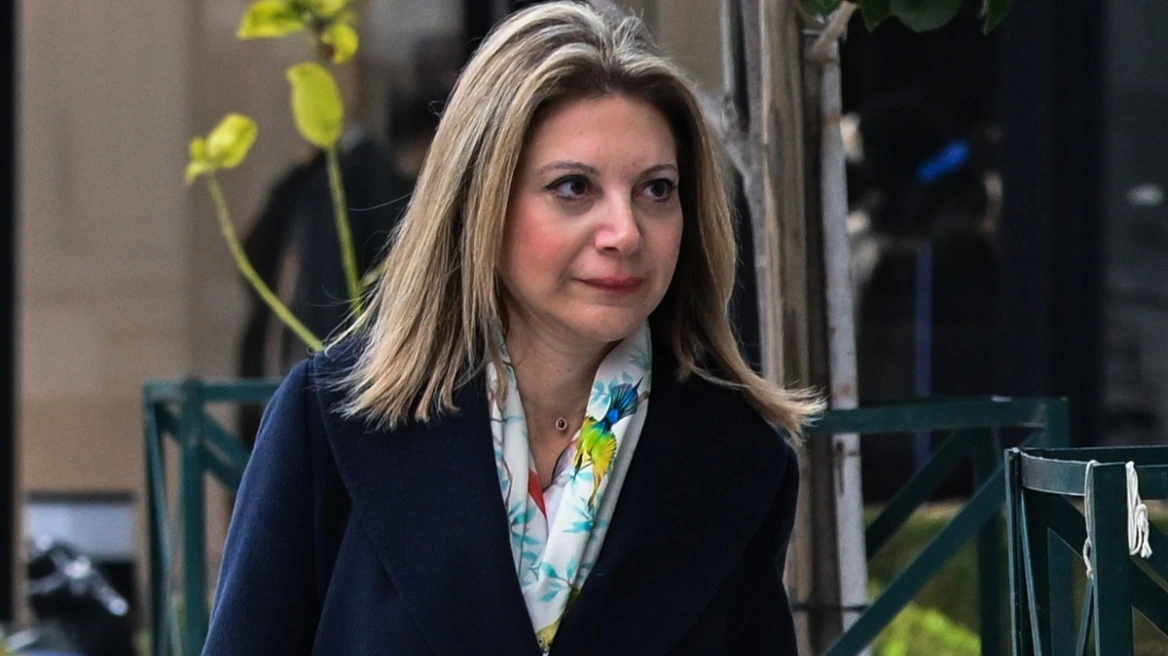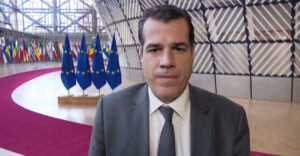Minister of Digital Governance Dimitris Papastergiou referred to the need for a European-level solution to limit inappropriate content provided by digital service providers. Mr. Papastergiou highlighted that social media platforms “offer everything,” and “a child can view any type of inappropriate material; therefore, in such a situation, we might need to consider more drastic measures for young children.”
“The issue of algorithmic addiction – essentially the issue of children’s addiction to screens – is a matter that countries are now starting to address globally, using both extreme and more moderate measures. Australia decided to ban all social media for children under 16 years old. France has taken a middle-ground approach, requiring parental controls for children under 15 on certain social media platforms,” Mr. Papastergiou stated on ERT.
He went on to stress that Europe must take measures and clarified that these measures fall into two categories: “One aspect is what we do with our children’s mobile devices. Today, there are apps that allow for control, but we want to create something more immediate, simpler, and more practical for parents. For example, we are examining the possibility of creating a ‘children’s wallet’ that would enable age verification.”
“But what primarily needs to be addressed is not so much the child’s device but rather the content that digital service providers promote. Specifically, how can we, as a united Europe, limit access to inappropriate material, especially in cases where platforms are aware that children are the ones on the other end? We must find a common approach to ensure we don’t expose our children to such dangers that exist online and currently go largely unchecked,” he added.
“If we agree that the current state of social media is unacceptable for young children and that it exposes them to danger, we must find a solution at the European level. This means finding a way to verify ages. Age verification is something Europe is currently exploring. There is even a relevant competition for solutions. One potential implementation could involve associating mobile devices with their users, particularly children, by verifying their age through a citizen registry and allowing the use of social media based on the final decisions made,” the Minister of Digital Governance said.
“An Unregulated and Uncontrolled Landscape”
“Today, there are various processes. If you ask me, social media offers everything, and a child can view any type of inappropriate material. In such a situation, yes, we might need to consider more drastic measures for young children. However, if tomorrow morning platforms were to enforce rules and impose ethical barriers on what they ‘serve’ to children, this could be controlled differently. We need to examine the current situation, what we are doing on our part, and what the providers are doing in a completely unregulated and uncontrolled social media landscape. I believe there are significant dangers for young children,” Mr. Papastergiou concluded.
Zacharaki: Stricter Rules
The issue was also addressed by the Minister of Social Cohesion and Family, Sofia Zacharaki. Speaking to SKAI, she stated that stricter rules will be implemented, with Dimitris Papastergiou preparing a platform for parents to exercise parental control. This platform will include keyword filters and restrictions for the use of mobile phones and the internet – not just for social media but for all digital media for children and adolescents.
The minister noted that this would apply to children under 15 years old, provided this age limit is set at the European level. She explained that digital adulthood begins at age 15.
Inclusion in School Curriculum
Meanwhile, Minister of Education Kyriakos Pierrakakis announced plans to introduce a school course teaching children how to manage themselves online.
According to the minister, there is already a book prepared by the Institute of Educational Policy, also available as an audiobook. “Yesterday, I met with the president of the Independent Authority for the Protection of Personal Data and his associates. They have provided us with an excellent educational program that we will integrate into schools, teaching children how to manage their relationship with social media. Initially, it will be introduced as a game. It will be incorporated into the computer science curriculum,” he said, speaking to ANT1.
Ask me anything
Explore related questions





